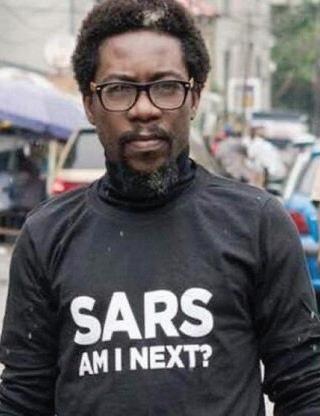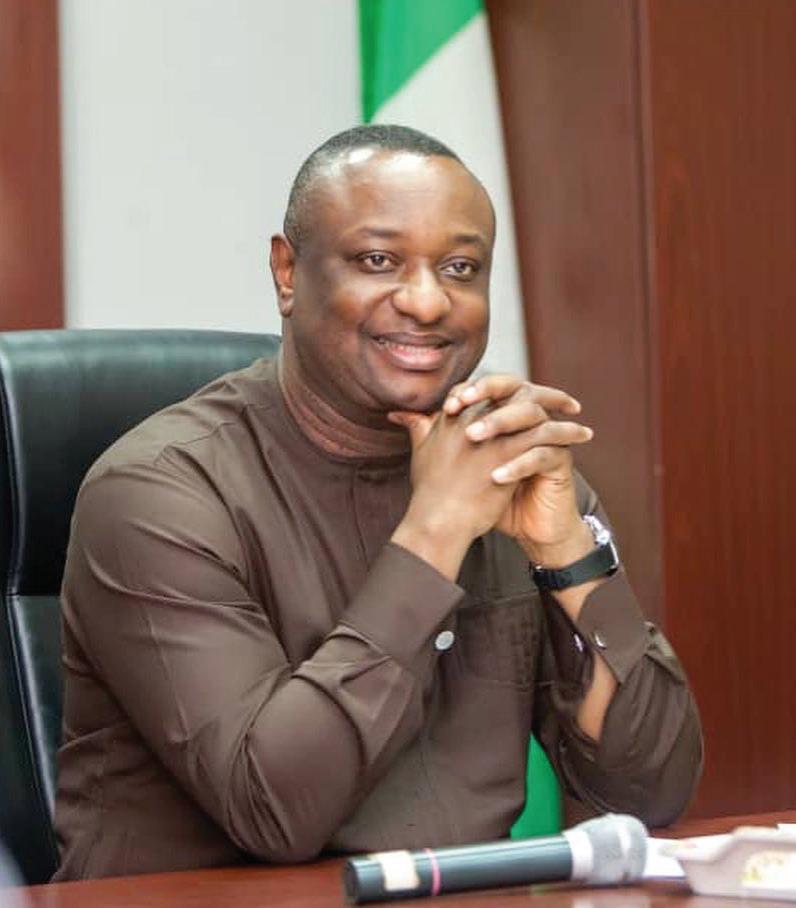
5 minute read
Woven Airpod Case BOTTEGA VENETA
COVER
Segun Awosanya
Advertisement

Festus Keyamo

and dining with the same government. We expect each other to be so morally bankrupt that we don’t trust them to not be able to have a sit-down with the ‘political demons’ and not fold. But how is it possible to change a system by not being a part of it? When we spoke to the Minister of State for Labour and Employment, Festus Keyamo, who was once a human rights activist but now sits with the government, he wasn’t too impressed by the public’s perception of him—he is infamous for allegedly being a sellout. The one-time DOWNTOWN cover personality said, “being in government is not a bad thing. All over the world, being in government is the ultimate aim of every activist; to have the reins of government. I will give you an example of that: all the separatist groups in the world are fighting for power. The ANC transmitted to a political party. The end result of Mandela’s struggles was that he became president. The IRA formed themselves into a political movement. In Palestine too led by Yasarafat they also had to seek power. The whole of Ojukwu’s struggles ended up in his coming back to seek power. The whole of Fela’s struggle ended up in forming the Movement of the People and they contested for presidency. Why am I different? The only difference is that most of these people lost and I won with my party.”
The Nigerian Electoral Process In Recent Years
It is not news that the Nigerian electoral process is a questionable one. Over the years, we have been meted by different acts that have threatened our democracy. Several episodes of ineptitude that typically start with the alleged registration of underaged voters, build up to the snatching of ballot boxes at targeted swingvoting centres, selling of votes for campaign goody bags, and ultimately, the alleged rigging of election results. In a nation where not every region enjoys proper media coverage and election crime investigation according to the precedence, one can only assume the worstcase scenario. When the people cannot pick a president of their choice despite following the often arduous voting process, we have perhaps the biggest issue in our hands to deliver Nigerians from an obviously lacking electoral process. Due to the government’s incompetency that has become the common theme amongst every president that was elected, we have had needs for everyday Nigerians to lead the charge, and the pack, to voice out their discontent.
Nigeria has ricocheted back and forth from military rule to democracy in its search for a worthy enough aspirant and yet the search still continues. In the wake of champagne toasts and the first flight of the Nigerian flag, it didn’t take us very long before we had our first coup five years later. The incumbent government at the time, the Northern People’s Congress, had rigged the election. Not long after was the first military coup sprinkled into Nigeria’s history books. Gen Thomas Aguiyi-Ironsi and his band of Igbo officers led the revolt ending the Hausa-Fulani dominance. Going by the modus operandi of military coups, lives were lost and it certainly wasn’t going to be the only one. Not less than six months later, it happened again. Nigeria dished its second serving of uprisings— the ‘revenge coup’ as it would be notoriously known. Aguiyi-Ironsi was killed and Gen Yakubu Gowon (then a colonel), took power. This ‘revenge coup’ sparked a bloody series of unfortunate events that saw the loss of thousands of lives. As the year rolled on, more coups were documented. The successive military revolutions crippled any idea of democracy until 1999. And to prevent future coups, the military stopped being an independent entity and surrendered its power to the head of state. Since then, fanning the flame of hope, political aspirants have refurbished, repackaged and resold it under catchy new slogans like; Change, Next Level, Swagga? Before diving too deeply into this discussion let’s get some things into perspective. Despite being endowed with humongous human and natural resources, the country is in debt.The nation owes ever-increasing trillions of dollars in debt. For a better example, it’s like asking someone— the counties and banks— to which you are indebted to lend you money and to promise you’ll pay it all one time, even if both parties are clueless of when it will happen. As Nigeria’s loans and I-owe-you’s stack up, the poverty line plummets. Food prices skyrocket as a result and people are unable to afford basic amenities needed to sustain themselves and their families. With the award of the worst timing going to COVID, the World Bank put the number of Nigerians that fell below the poverty line in 2020 at seven million. The country also remains the poverty capital of the world with 93.9 million of Africa’s most populous countries currently living below the poverty line, stated analysts at Financial Derivatives Company (FDC) Limited. An activist as defined by Collins dictionary is an individual who works to bring about political or social changes by campaigning in public or working for an organization. Some examples would be Martin Luther King Jr, Malcolm X, Nelson Mandela and Marcus Garvey. However, in Nigeria, there’s a threshold to term ‘activism’ albeit financial or personal. It is a threshold instilled in most people from a very young age through the same medium; parents, teachers and on buildings and monuments scattered around the country to do more than “remind” young people who chose this path of the heroes past. It is very easy to claim to fight for Nigeria in the diaspora or behind your smartphones or computers but it’s another thing to put your neck underneath the guillotine for your country. The former is what modern-day activism is all about because outside social media and Twitter, your so-called activists have pangs that ail them either financial, economic or personal. Dissuade yourselves from getting sucked into the uproar and focus on the bigger picture because while you are stuck in awe of those well-lit pictures taken in beautiful sceneries on Instagram, political-office hopefuls are staring at the Monalisa. The aim here is not to solve problems of conscience or loyalty but to foresee the harsh reality that’s set to unravel sooner rather than later. Sell-outs are like weevils to a sack of beans or weeds to a patch of land; they come with the territory. The real question now is; Dear activist, are you a sell-out?


